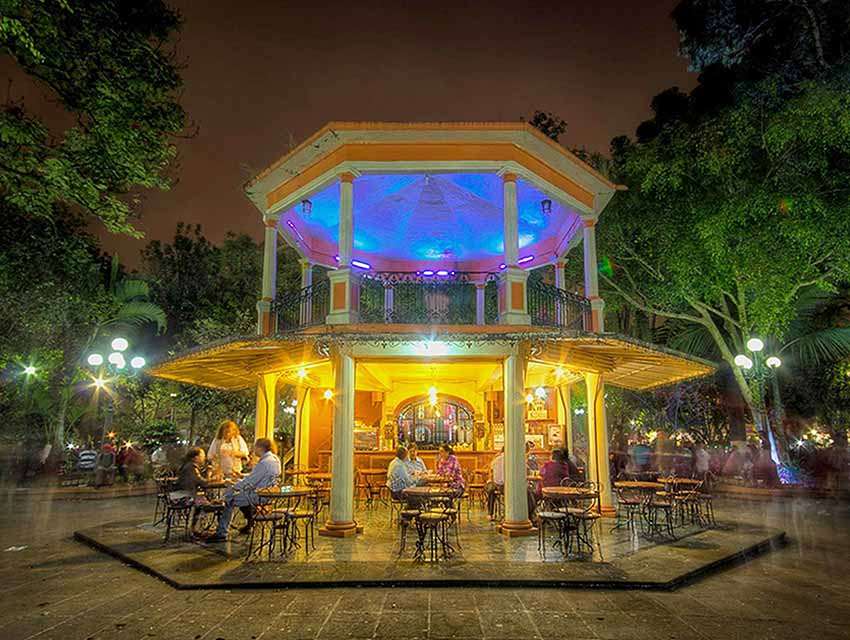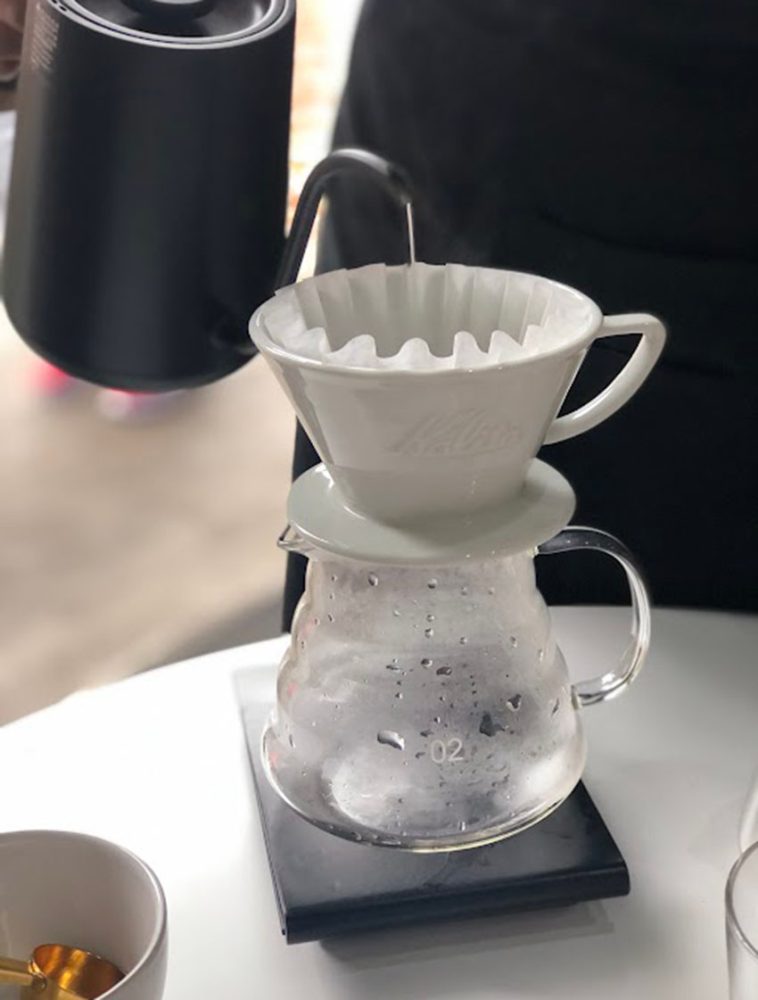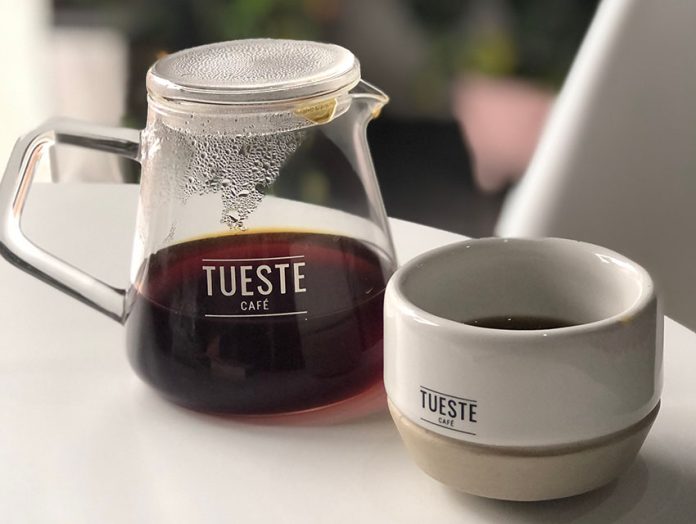There’s something very special about watching the ceremony of a cup of coffee being carefully and precisely prepared just for you.
As the exact amount of coffee grains – medium ground – are scooped up and then placed carefully into the filter of the V60 coffee dripper, Karla explains the flavors I’ll perceive: fruity, not unlike the sweetness in apples and peaches. Acidic. The coffee is grown locally, and Tueste, the coffee bar in nearby Coatepec, Veracruz, where I’m enjoying my first official cata (tasting), clearly takes every step of the process seriously.
Like many select cafés in the area, the baristas here appreciate the art of a good cup of coffee. It’s treated with both curiosity and reverence, and even those who know more than I can ever hope to about the drink seem to be too in awe of the vast array of experiences it provides to bother being pretentious about it.
Veracruz, and especially Coatepec, Veracruz, is the land of coffee.

Okay, fine. Lots of places are “the land of coffee,” but café veracruzano especially stands out for its excellence. Veracruz is the first place through which coffee was brought to Mexico by the Spaniards (which was really the least they could do for Mexico, all things considered), where it took to the land like a fish in water.
Coffee has a few requirements for survival: lots of water; a mild temperature; taller trees around it to give it shade.
Check, check, and check: the Cloud Forest in which Coatepec is located is officially coffee-plant heaven. And the coffee lovers among us might very well hold it in the same high regard.
While coffee got its original foothold in Mexico in Veracruz, it’s since been surpassed by Chiapas when it comes to the volume produced (Puebla is next in line).
Most coffee in the state is grown by small producers; indeed, 95.5% of fincas are smaller than three hectares. Most coffee growers sell their fresh harvests to larger national and international corporations (if you’ve seen Nescafé’s “Veracruz” soluble blend, you’ll see a good example of where that coffee ends up).
According to sustainable specialty coffee producer Diego Porras, this puts many coffee growers at a fairly large economic disadvantage: with three to four major corporations as the main purchasers for the crop, prices stay low.
This in turn means that much of the coffee sold to “the big guys” is not necessarily of the best quality, as it makes little sense to nurture and grow something magnificent for such a small return.
Luckily for those giant players, most of the world is perfectly fine with mediocre coffee; even in Mexico, the majority of those who drink coffee go with a soluble option — instant coffee.

Over the past decade or so, however, the market for specialty coffee has been growing. There is even a coffee festival every May in Coatepec. More and more specialized coffee bars have popped up here to do what they do best to satisfy a more sophisticated and enthusiastic clientele.
Some, like Tueste, offer courses and tastings. All of them offer a fantastic coffee-drinking experience, and their presence means that some coffee growers in the area can afford to spend the time and care growing and nurturing the state’s most famous plant; some even shepherd it the rest of the way to its final product, opening “finca to table” coffee bars of their own.
The nature is there, but the nurture is what takes it over the finish line, after all.
And while there are other places throughout the country in which a sizable portion of the population appreciates a really good cup of coffee, Coatepec is a town that sticks out to the fan base: specialty coffee shops there abound, and its economy benefits largely from every piece of the plant-to-cup production line.
At any given moment walking through the streets, one can smell the roasting or brewing of coffee. Add to that the cool and often drizzly climate, mountain views and colorful downtown architecture, and there really is a lot to love.
I asked Karla why she thought there had been such a boom in specialty coffee lately in a place that has truly always deserved it. Coffee is a world of adventure that one would be hard-pressed to stop exploring, she said.
Porras would agree: sometimes the way a cup of coffee turns out “can even depend on the mood one’s in — or on the weather,” he says with a laugh.
As I ride home to Xalapa from Coatepec, the rain continues to drizzle onto the coffee plants below. I might not sleep that night, but I do go to bed happy.
Sarah DeVries is a writer and translator based in Xalapa, Veracruz. She can be reached through her website, https://sarahedevries.substack.com/
